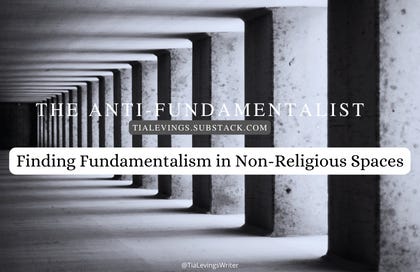When I was a young Christian wife, I thought fundamentalism was something only found in the Middle East. It was after 9/11 and America was at war.
“Fundamentalism” was synonymous with religious extremism, but not my religion—theirs. The Taliban. Muslims. Al Queda. We Southern Baptists lumped every Islamic group together, smearing the lines between the …
Keep reading with a 7-day free trial
Subscribe to What the Fundamentalist?! to keep reading this post and get 7 days of free access to the full post archives.



